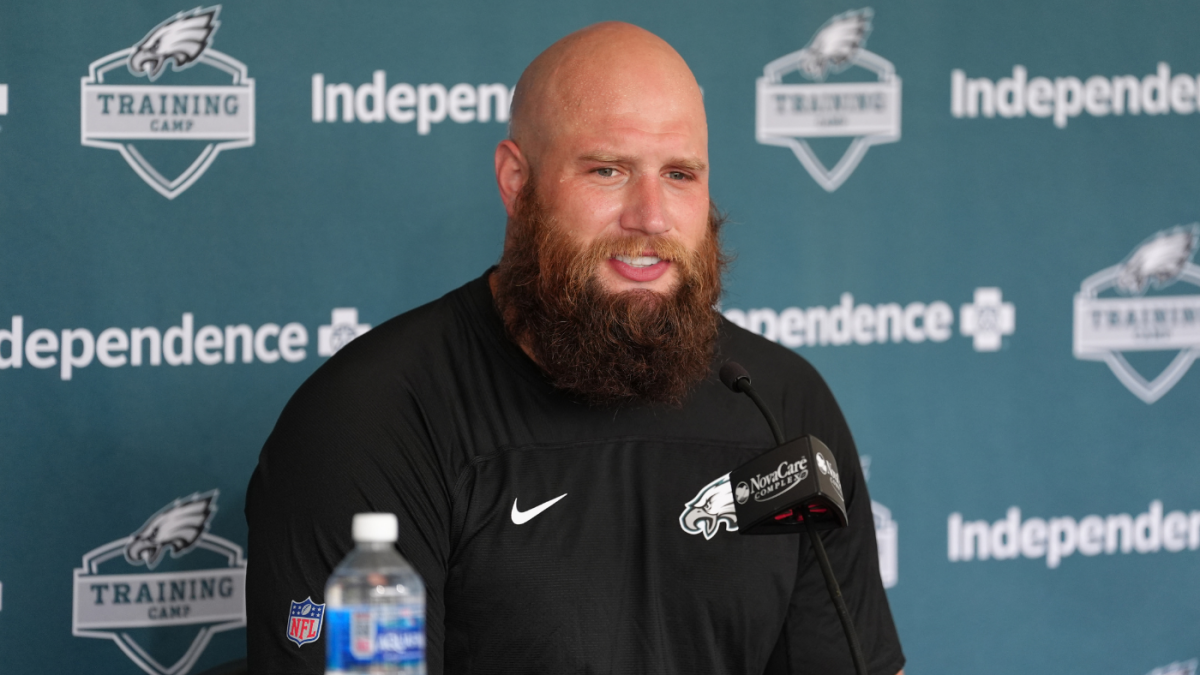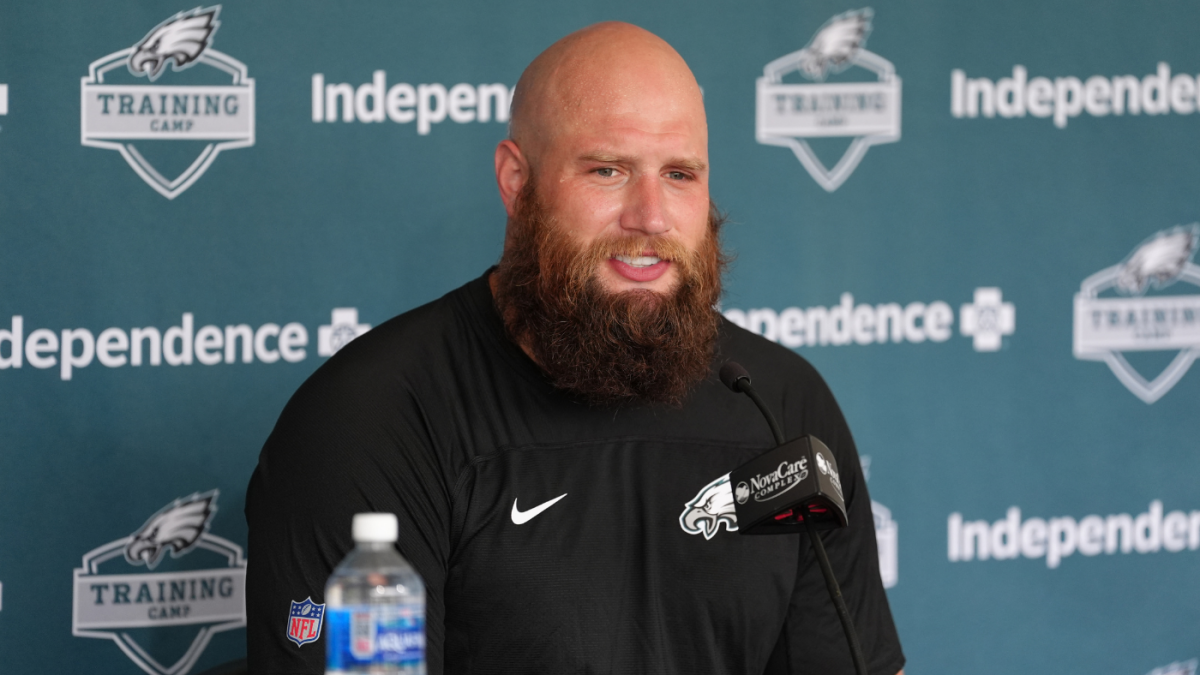The NFLPA Under Scrutiny: Lane Johnson’s Criticism and the Union’s Challenges
Introduction
The National Football League Players Association (NFLPA) has long been a cornerstone of player advocacy in professional football. However, recent criticism from Philadelphia Eagles’ right tackle Lane Johnson has cast a spotlight on the union’s internal struggles. Johnson’s blunt assessment of the NFLPA as a “s–show” has ignited a broader conversation about the organization’s leadership, transparency, and effectiveness in representing players. This report delves into the factors contributing to Johnson’s discontent, the broader context of the NFLPA’s challenges, and the potential implications for players and the league.
A Union in Turmoil
The NFLPA has faced a series of controversies that have eroded trust among players and raised questions about the union’s stability. High-profile resignations, internal conflicts, and a lack of cohesive leadership have created an environment of uncertainty. The union’s credibility has been further undermined by scandals and a perceived failure to adequately address player concerns. This backdrop of turmoil makes Johnson’s criticism particularly impactful, as it reflects a growing sentiment among players that the NFLPA is not effectively serving their interests.
The PED Suspension Saga
One of the most contentious issues contributing to Johnson’s frustration is the NFLPA’s handling of performance-enhancing drug (PED) suspensions. Johnson himself has been affected by the league’s PED policy, facing a 10-game suspension. He alleges that the NFLPA has “blood on its hands” regarding his suspension, suggesting that the union failed to provide adequate representation and support during the process. Legal filings reviewed by Sporting News reveal that Johnson’s attorneys accused the NFLPA of “attacks” on Johnson, further highlighting the strained relationship between the player and the union.
The specifics of Johnson’s case, including allegations of misconduct during arbitration hearings, underscore the complexities and potential shortcomings in the NFLPA’s approach to player advocacy. The union’s role in such cases is crucial, as players rely on the NFLPA to navigate the intricate legal and procedural landscape of league disciplinary actions. Johnson’s experience suggests that the union may not be fulfilling this role effectively, raising concerns about its ability to protect players’ rights in similar situations.
Leadership Vacuum and Internal Conflicts
The recent resignations of key figures like Lloyd Howell and JC Tretter point to internal conflicts and a lack of cohesive leadership within the NFLPA. These departures create a vacuum at the top, leaving players questioning the direction and stability of the union. Without strong and unified leadership, the NFLPA struggles to effectively address player concerns and negotiate with the league on critical issues. The internal struggles also erode the union’s ability to present a united front, weakening its bargaining power.
The leadership vacuum within the NFLPA is particularly concerning given the complex and high-stakes nature of labor relations in professional sports. Effective leadership is essential for navigating collective bargaining agreements, addressing player grievances, and advocating for player rights. The union’s inability to maintain stable leadership raises questions about its long-term viability and effectiveness in representing players’ interests.
The Brotherly Shove Debate
The “Brotherly Shove,” a controversial play executed by the Philadelphia Eagles, has become a focal point for debate and criticism. While not directly related to the NFLPA’s internal issues, the controversy surrounding the play highlights the broader challenges facing the league and its players. The discussion around player safety, competitive balance, and the interpretation of rules underscores the need for strong player representation and a union capable of advocating for fair and reasonable solutions.
Johnson’s involvement with the Eagles and his outspoken nature make him a natural voice in these discussions, further amplifying his concerns about the NFLPA’s effectiveness. The Brotherly Shove debate illustrates the complex interplay between player actions, league policies, and the role of the union in advocating for player interests. The NFLPA’s ability to navigate such controversies and advocate for players is crucial for maintaining trust and credibility among its members.
Implications for Players and the League
Johnson’s harsh critique of the NFLPA has significant implications for both the players and the league. When a prominent player like Johnson publicly expresses dissatisfaction with the union, it can erode confidence among other players and potentially lead to further division. This can weaken the NFLPA’s ability to negotiate favorable terms in collective bargaining agreements and advocate for player rights. Moreover, a fractured union can create instability within the league, impacting labor relations and potentially leading to disruptions such as lockouts or strikes.
Eroding Player Trust
Johnson’s comments, combined with the controversies surrounding the NFLPA, can erode trust among players. If players feel that the union is not adequately representing their interests or protecting their rights, they may become less engaged and supportive of the organization. This can lead to a decline in membership and a weakening of the union’s overall influence. The NFLPA’s ability to effectively represent players depends on the trust and support of its members, making the erosion of trust a significant concern.
Impact on Collective Bargaining
A weakened NFLPA can have a detrimental impact on collective bargaining negotiations with the league. Without a united front and strong leadership, the union may struggle to secure favorable terms for players on issues such as salaries, benefits, and working conditions. This can lead to resentment and dissatisfaction among players, further exacerbating tensions within the league. Effective collective bargaining is essential for maintaining a balanced and fair relationship between players and the league, and the NFLPA’s ability to negotiate on behalf of its members is crucial for achieving this balance.
Potential for Labor Disputes
A fractured union and strained labor relations increase the risk of labor disputes, such as lockouts or strikes. These disruptions can have significant economic consequences for both the players and the league, as well as negatively impacting the fan experience. Therefore, it is crucial for the NFLPA to address the concerns raised by Johnson and other players to restore trust and stability within the organization. The potential for labor disputes underscores the importance of a strong and unified union in maintaining a stable and productive relationship between players and the league.
Restoring Faith: A Path Forward for the NFLPA
Addressing the issues plaguing the NFLPA requires a multi-faceted approach focused on restoring trust, strengthening leadership, and improving player representation.
Transparency and Accountability
The NFLPA must prioritize transparency in its operations and decision-making processes. This includes providing players with clear and accessible information about the union’s finances, policies, and activities. Holding leaders accountable for their actions and ensuring ethical conduct are essential for rebuilding trust. Transparency and accountability are fundamental to the NFLPA’s ability to maintain the confidence of its members and effectively represent their interests.
Strengthening Player Representation
The NFLPA needs to enhance its efforts to represent and advocate for players’ rights, particularly in cases involving PED suspensions and other disciplinary matters. This includes providing players with access to experienced legal counsel and ensuring that their voices are heard throughout the process. Effective representation is crucial for protecting players’ rights and ensuring that they are treated fairly by the league. The NFLPA’s ability to provide strong and effective representation is a key factor in maintaining the trust and support of its members.
Promoting Unity and Collaboration
The NFLPA must foster a culture of unity and collaboration among its members. This involves creating platforms for open dialogue and encouraging players to voice their concerns and ideas. Building consensus and working together towards common goals will strengthen the union’s bargaining power and improve its ability to advocate for player interests. A united and collaborative approach is essential for the NFLPA to effectively represent the diverse interests of its members and achieve its goals.
Electing Strong Leadership
The NFLPA needs to elect strong and capable leaders who are committed to serving the best interests of the players. These leaders should possess the skills and experience necessary to navigate complex labor relations issues and effectively negotiate with the league. Strong leadership is crucial for the NFLPA’s ability to address the challenges it faces and effectively represent the interests of its members. The election of capable and committed leaders is essential for the union’s long-term success and stability.
Conclusion: A Wake-Up Call
Lane Johnson’s candid assessment of the NFLPA as a “s–show” serves as a wake-up call for the organization. The issues he highlights, including leadership struggles, controversies, and concerns about player representation, demand immediate attention. Addressing these challenges requires a commitment to transparency, accountability, and a renewed focus on serving the best interests of the players. Failure to do so will only further erode trust and undermine the union’s ability to effectively advocate for its members. The future of the NFLPA, and the stability of the league, depends on its ability to heed Johnson’s warning and embark on a path of reform and renewal. The union must take decisive action to restore trust, strengthen leadership, and improve player representation to ensure that it continues to effectively serve the interests of NFL players.












